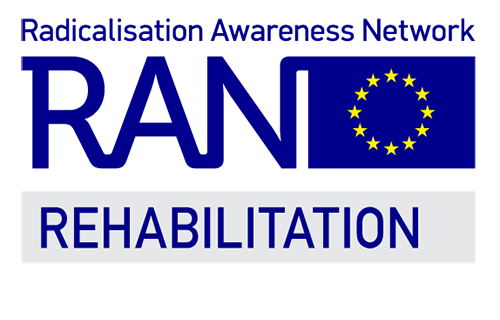
Thursday 14 March 12.00-18.00 and Friday 15 March 09.00-13.00 CET. This meeting will take place in Zagreb, Croatia
Background and aim of the meeting
In recent years, gender has increasingly been acknowledged as a crucial element in P/CVE and specifically in the rehabilitation from (violent) extremism. Men and women enter and exit (violent) extremism for a variety of reasons, some of which include a gender element. Accordingly, clients of disengagement, deradicalisation, or rehabilitation (DDR) programmes require individualised support in their distancing from (violent) extremism that accounts for and addresses the gendered elements of their experience. This also includes considerations as to how gender norms and roles will affect their reintegration into society. While the number of female violent and extremist terrorist offenders (VETOs) is relatively small compared to male VETOs, numbers have increased in the past few years. Therefore, there is a need to re-examine the necessary rehabilitation work with this target group and to simultaneously reflect on how masculinity is addressed in existing DDR programmes.
In 2019, RAN EXIT held a Working Group meeting on ‘Gender-specific approaches in exit work’. In the same year, RAN P&P working paper ‘Approaches to countering radicalisation and dealing with violent extremist and terrorist offenders in prisons and probation’ outlined the specificities of dealing with female and male offenders in prison and probation. The topic was addressed in the revised 2022 Returnee Manual and the 2020 Rehabilitation Manual. Most recently, a RAN specialised paper on ‘Gender specificity in practical P/CVE: Reviewing RAN Practitioners’ activities in 2021’ included observations on rehabilitation.
Based on the insights from these meetings and publications, this Working Group meeting will take inventory of how gender specificity in DDR practices has evolved and where progress has been made in recent years, how practitioners are currently addressing the topic in their work, and what challenges they are encountering in doing so.
Key questions this meeting will address include:
- How do we reach the female target group with rehabilitation efforts?
- How has the more systematic prosecution of returning women in recent years influenced the awareness of gender aspects in rehabilitation and risk assessment?
- What barriers do clients describe when attempting to disengage from violent extremism?
- Do they differ for men and women?
- To what extent does gender influence these?
- What obstacles do clients face when seeking to reintegrate into their communities?
- Do they differ for men and women?
- To what extent does gender influence these?
- What facilitates and improves chances of successful exit?
- Does it differ for men and women?
- To what extent does gender influence this?
- Does the measure of 'success' differ for men and women?
- What services/support do clients in exit need from authorities or civil society to facilitate their initial disengagement?
- Do they differ for men and women?
- To what extent does gender influence these?
- What does good practice mean for exit work?
- Does it differ for men and women?
- To what extent does gender influence this?
- How to address (gendered) trauma in rehabilitation?
The outcomes of the meeting and its conclusions will be shared with the policy makers of the EU Member States and may feed into the agenda of the European Commission. It is an opportunity for exit and probation practitioners to voice their concerns and expectations for the future in a safe space protected by the Chatham House Rule.
Practitioners we are looking for are:
The target audience for this meeting are exit and probation practitioners involved in the rehabilitation of individuals of all genders leaving a violent extremist group and/or abstaining from radical ideology.
In order to find the best-suited participants, we would like to kindly ask you to briefly answer the following questions:
- What is your experience with the gendered aspects of the rehabilitation of radicalised individuals as a practitioner? What gender do you work with primarily?
- Do you work with gender-specific methods or interventions?
- What role does gender play in your work as a practitioner working in rehabilitation?
- What challenges related to gender do you encounter in your work?
- Are there any cases/examples linked to these challenges that you would like to present during the meeting?
Deadline
If you are interested in participating in this meeting, please fill out this form by 19 February. We will invite participants based on the information provided therein. Please keep in mind that we only have a limited number of places available for this meeting to foster exchange, so participation cannot be guaranteed.
The meeting will be held in English (without interpretation).
If you have any further questions, please don’t hesitate to contact alexandra [dot] korn violence-prevention-network [dot] de (Alexandra KORN) or m [dot] vandedonk
violence-prevention-network [dot] de (Alexandra KORN) or m [dot] vandedonk radaradvies [dot] nl (Maarten VAN DE DONK).
radaradvies [dot] nl (Maarten VAN DE DONK).
Sources
Details
- Publication date
- 2 February 2024
- Author
- Directorate-General for Migration and Home Affairs
- Location
- Zagreb
